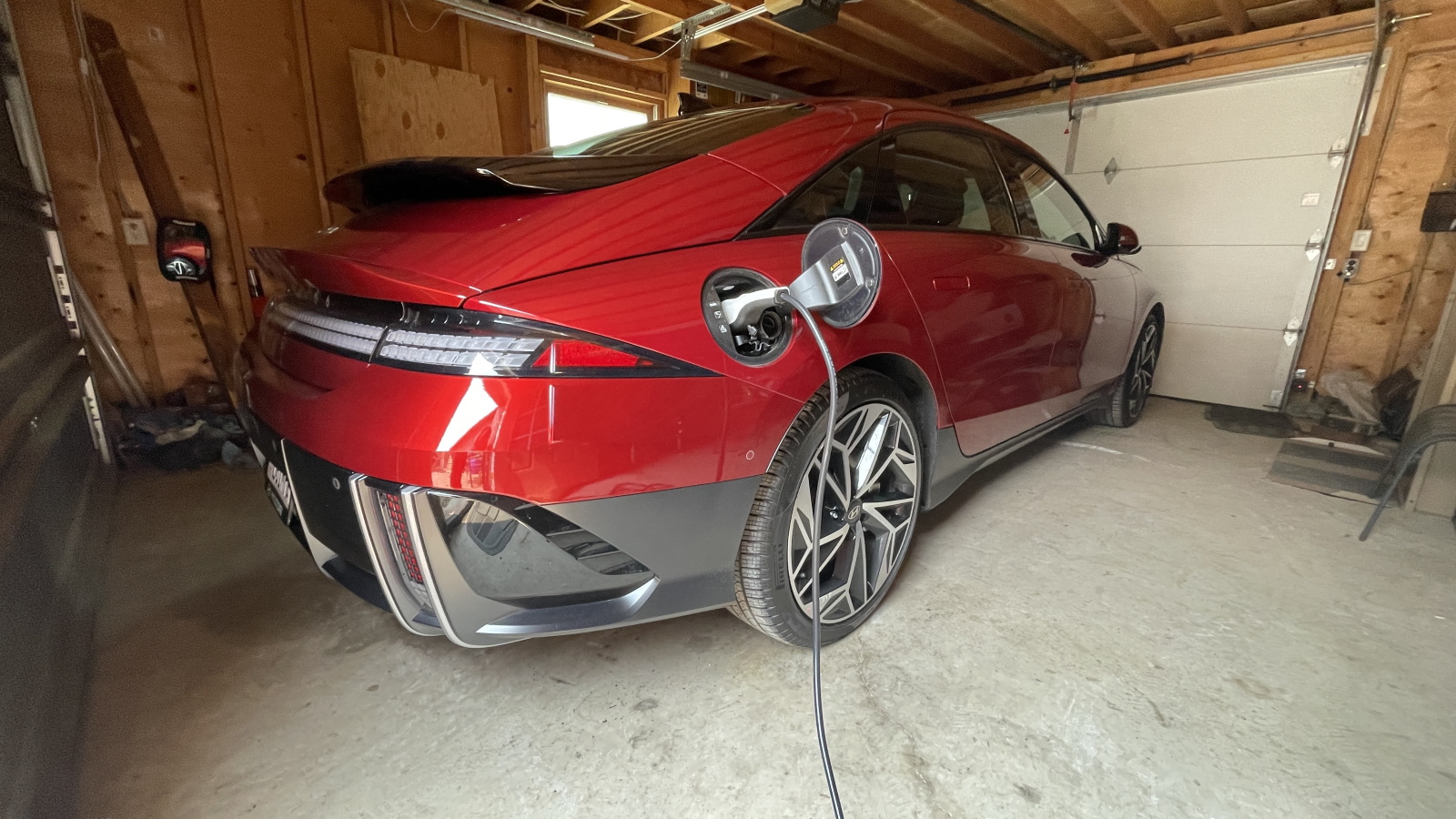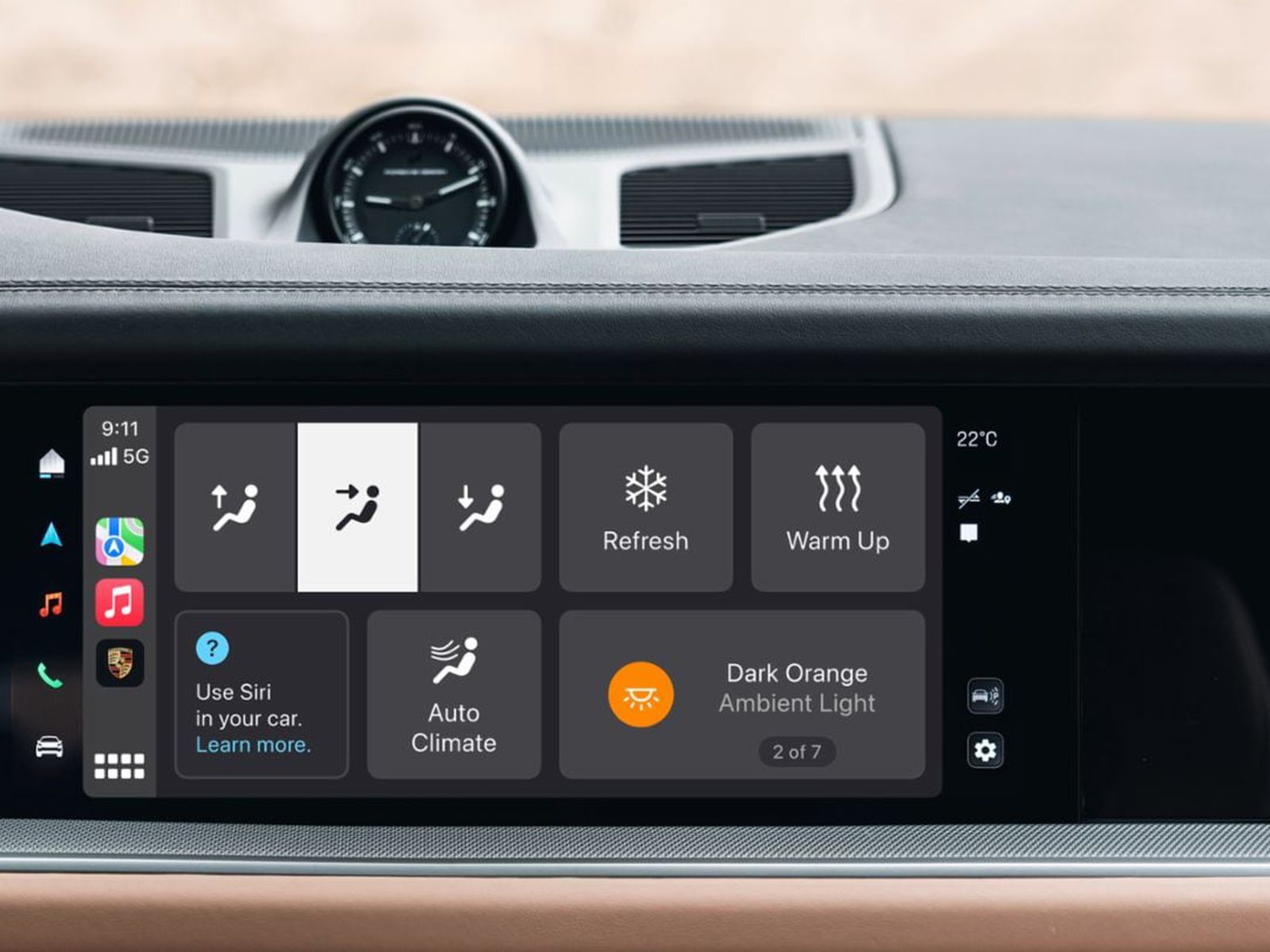You’ve probably seen some foreboding headlines about the electric vehicle market getting super weird in the U.S., with inventories suddenly super-high after months of hype and excitement. What happened? It’s indeed more complicated than you think, but also… not.
That leads off this midweek, mid-July edition of The Autopian’s morning news roundup. I hope you’re staying cool out there. Also on our menu today: a look at new and used car prices evening out, rough news on the Ford quality front (again!) and how Porsche’s responding to the Apple CarPlay takeover. Let’s get started, we haven’t a moment to waste!
Are EVs Losing Steam Or Are They Still Just Too Damn Expensive?

This year was supposed to be the year that EVs went mainstream—the year more and more people broke up with gasoline amid sweet new tax breaks and unprecedented public investments into charging. Now, midway through the year, we’re seeing what Axios called a “growing mismatch between EV supply and demand” that’s leading to EVs spending twice as much time on dealer lots as gasoline cars. In other words, there are lots of electric cars on lots but not a lot of buyers.
I’ve read some takes this week that are balanced and thoughtful (like Axios‘ report) and some unhinged, doom-and-gloom takes often from hardcore EV naysayers that I won’t even link to. I’m pro-electrification, but I’m also a cold, hard pragmatist and it’s not my job to sell these things—merely to tell you what’s going on. So here’s my read on the situation:
- People are interested in EVs, and we’ll see more of the market move that way over time
- It’s pretty dependent on charging options, which still aren’t good enough and probably won’t be for a couple of years
- This situation is more than likely temporary, not permanent
- Losing the EV tax credits on everything but a few U.S.-made models is hurting, not helping, electric growth
- Rising interest rates really aren’t helping here either…
- …because these things are still too damn expensive for a lot of people.
That’s it! That’s my exclusive, hot-take analysis of this situation, the kind of expertise you’re only gonna find here, folks. (Make sure to subscribe if you don’t!)
Seriously, it ain’t hard. I dove into this at Heatmap earlier this week but the average EV price is still around $60,000 in America and that’s actually gone up this year. This, despite the huge glut of EVs coming to the market.
Here’s Reuters today diving into this a little deeper with some analysis I like. Among their data: General Motors had 50 days’ worth of Cadillac Lyriqs available by the end of June (the industry average is 52 days) but those are barely on the road yet; the Ford F-150 Lightning is at 86 days and the Mach-E is at 113 days; and the Volkswagen ID.4 is at 131 days. All of those cars qualify for EV tax credits, too.
Rising inventories and price-cutting could represent only a short-term pause in EV market growth. But they could be signals that boosting U.S. EV sales above the current 7% market share level will be more costly and difficult than expected, even with federal and state subsidies.
Automakers North America have billions of dollars in EV-related investments riding on how the next several quarters play out. If production of EVs continues to outpace demand, automakers will have to choose between slashing prices and profit margins, or slowing assembly lines.
And I’m not sure they’ll cut prices on these things much, because they’re already (often) so unprofitable to begin with. Automakers can make big claims about wanting to go “all-electric” in a decade or whatever, but that’s just talk until it meets the cold, hard reality of shareholder capitalism.
Take that sentence I emphasized in the paragraph above. Next several quarters? That’s a tough line for automakers to walk with their investors, considering the EV thing will be a long-term, possibly permanent investment. But in America, your company lives and dies by strings of quarterly results.
Now, why am I convinced this isn’t a permanent lack of interest in EVs? I’d point to Tesla for that one. I’m also by no means an Elon apologist but the company sold almost 500,000 EVs globally just in Q2, and according to estimates about 310,000 of those were just Model Ys and Model 3s sold in the U.S.
Why, you ask? Well, Tesla still has the best charging network (though it won’t be exclusive forever now) and… wait for it… they have the best deals on EVs. Range, too, but when you factor in all of those cars, these are still the best pound-for-pound electric deals you can get right now. They just are, and I say that as someone who’s getting tired of seeing the damn Model Y everywhere I go.
I think if Tesla demand was cratering amid all of its own price cuts, the alarm should really be sounded for the EV market. But you absolutely cannot blame people, right now, for not wanting a $60,000 electric crossover that lives and dies by ChargePoint and Electrify America.
More from Reuters on that:
“Price cuts do show that we’re in sort of an equilibrium of demand and supply and price so when sales aren’t there, they’re going to be dropping price,” said Mark Wakefield, co-head of consultancy AlixPartners’ automotive practice. “Tesla in particular has the room to do that.”
Wakefield said it is too soon to declare that U.S. EV demand has hit a plateau. “We see it as choppy growth, but continued growth,” he said.
But even if the automakers can’t throw discounts on EVs right now, you know dealers might. Here’s a (technically used because it’s a 2022 model but with only 2,500 miles) Hyundai Ioniq 5 I found that’s just $36,000. That’s… very tempting. Same case with this Mustang Mach-E. So if you want one of these things, you may be able to take advantage of some deals if you know where to look.
Update: After I published this story, I noticed our old pal Tom McParland spotted the same trend and wrote about it for Jalopnik (which doesn’t surprise me, nobody knows their stuff more than he does.) Check this out to learn more about some strong EV deals right now.
New Car Prices Are High But At Least Stabilizing

Yesterday, Matt wrote about the gradual decline in used car prices and why it’s kinda good news but also not anything mind-blowing. Basically, interest rates—which are always higher on used cars—make it so you may just get a better overall deal on something new right now.
Here’s more on this weird situation from the Detroit Free Press:
On the new car side, the average price Americans paid for a new vehicle in June was $48,808, up 1.6% from the year-ago period, Kelley Blue Book, a Cox Automotive company, said Tuesday. That is the smallest year-over-year price gain since the start of the global pandemic, Kelley Blue Book noted.
And, compared with the start of the year, transaction prices are down 1.7%, or $865 from $49,388 in January. It is the largest January to June tumble in the past decade, according to Kelley Blue Book.
“The fact that average transaction prices are up a meager 1.6% year-over-year in June is notable,” said Michelle Krebs, executive analyst at Cox Automotive. “A year ago, the industry was looking at transaction prices that were consistently up 10% to 12% year-over-year. With no inventory in place, it was inflation gone wild.”
Stability is good. And more and more folks I talk to in the industry say the worst is probably over with regard to the chip shortage. Now we just have to wait for all the new car prices to go back down to their pre-pandemic levels! I’ll be on my front lawn if anyone needs me.
Porsche: If You Can’t Beat Apple, Join ‘Em

Yeah, not many people are confident that GM can do a better job with infotainment systems than freaking Apple. I get where the automakers are coming from in not wanting to cede their dashboards (and data) to tech companies and I hardly have the desire to defend a company like Apple, but consumers want what they want for a reason.
Porsche, on the other hand, is just leaning into it and making it so you don’t have to switch back to the “main” menu to operate certain controls—they now work through Apple CarPlay instead. Imagine that! From Car and Driver:
Apple CarPlay just got a little more useful for Porsche owners. Underscoring further just how much owners prefer third-party software like CarPlay over the native manufacturer systems, Porsche has updated its My Porsche app software, allowing for further support within Apple CarPlay. Users can now make changes to things that would otherwise only be controlled by the manufacturer software. That means things like cabin sound profiles, climate control, and ambient lighting in the cabin can now be changed directly from Apple CarPlay menus.
The new functions can also be added to new “wellness modes” like Relax, Warmup, and Refresh, all using CarPlay. Possibly the most exciting part of the update comes from the ability to use voice activation and Siri for things like changing climate control or radio settings.
Useful. And it’ll be fascinating to see how these different OEMs deal with the Apple CarPlay and Android Auto showdowns they’ll inevitably face.
Another Day, Another Ford Quality Issue

It wouldn’t be a day ending in y if we didn’t have another Ford quality issue to cover. This one deals with some recent Ford Escape crossovers with an apparent welding issue that could mean you inadvertently escape from your Escape. Via Automotive News:
NHTSA’s Office of Defects Investigation said it received 118 reports from U.S. vehicle owners alleging “a failure of the spot welds in the check arm bracket for the front doors” on 2020-21 Ford Escape vehicles, according to a federal document released Tuesday.
There have been 25 reports of minor injuries and one report of minor property damage related to the issue, the agency said.
Many of the owners reported hearing a “popping noise” when opening the front doors. NHTSA said continued use of the doors could result in a dislodged door check, potentially causing a failure to latch when closed, a failure to open or inadvertently opening while driving.
If you own one of these cars, you may want to get a dealer to check it out. Or learn to tuck and roll.
Your Turn
Look: the world just does not need another $60,000 electric crossover. It needs, like, more electric Toyota Corollas. But who will be the first to make that? Tesla? BYD? Toyota itself? And would people actually buy it?

- This Word I Deleted From A Headline Sent Our Whole Staff Into A Heated Debate
- I Rode A Japanese Bullet Train For The First Time And It Was Nothing Like I Imagined
- What Brands Could Have Really Cool ‘Mascot Cars’? (You Know, Like A Weinermobile)
- Canada’s New Hot Rod Business Jet Is The Fastest Passenger Plane In The World




the folk most interested in an ev are the same ones who can barely afford to pay their rent. there is a whole country of used cars out there. folk buy them cause that’s all they can afford. freakin’ plates are a weeks pay, insurance, even the minimum cost a moths pay, detroit has dragged out the payment plans to longer than some cars can last. it doesn’t help that by the time your ride is paid off you’re then looking at a $15 grand battery replacment…
That $36K used Ioniq 5 sold already. I like that car, but a base one starting at almost $42K is hard to rationalize, when a Model 3 is notably less.
A truly base Ioniq 5 with a smaller battery, etc… ought to MSRP for $30K IMO so as to better compete with the upcoming Equinox EV and other ‘affordable’ EVs such a Leafs, Bolts, Minis, and Volvo’s EX30.
JMHO, though no one asked me of course, including Hyundai.
Just saw my first Cadillac Lyric in the wild this morning (Mason, Ohio). It looked nice; a dark blue color. I was starting to wonder if these were just made up marketing hype!
I’m sure there’s also a sizable portion of people that don’t care for EV’s. And I don’t mean the hardcore “ICE till I die!” people like myself, I mean there are normies who have been putting gas in a car their whole life and don’t care to change that up. Especially older people who hate changes, they’ll just happily get a newer gas car and have fundamentally the same experience they’ve had for their whole life.
EV’s just don’t have any huge benefits that are tangible to the average person. A big part of the country doesn’t care about climate change, and gas is still quite inexpensive in the US, compared to the rest of the world. EV’s would have to be dirt cheap, have a huge range, and have a charging network that is equally as big as the gas station network. Basically it would have to be easier than owning an ICE car. Right now, owning an EV is still very much an early adopter move, and it comes with its inconveniences that a lot of people don’t want to deal with.
Thanks to The Autopian for pointing out Tom’s article on the other site. I still scroll through the other site, but they seem to like burying certain articles so no one can find them. See their latest video that I don’t watch 5 times while scrolling through “Latest”, but not Tom’s article or the day’s NPOND…two of the writers I look forward to there.
I view EVs at this point still as secondary “commuter” cars. So a EV “Corolla” would suit me just fine. The Bolt was doing that, now it is going away. The Leaf still does that, but not as well as the Bolt did.